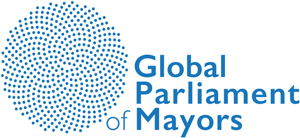Over 143 million people will be displaced by 2050 in Africa, Latin America and South Asia if we do not take steps to address climate change (World Bank). We must act now. The Global Parliament of Mayors (GPM) has joined forces with the British Council to put a spotlight on city leaders and the importance of local action.
The British Council and the Global Parliament of Mayors are proud to invite you to the high-level meeting
“Uniting Mayors for Local Solutions to Global Climate Challenges”
Reflections on the impact of climate change and the rise of sea levels on
climate-related migration and the recommendations of mayors to go forward.
Programme 20 April, 16.00 – 18.00 hrs CEST
- 16.00 hrs CEST – Plenary Session
- Opening
- GPM Chair Mayor Peter Kurz of Mannheim, Germany
- Stephen Stenning, Head of Arts and Society, British Council
- Keynote Speaker
- António Vitorino, Director General of IOM
- Presentation
- Presentation research results by Professors Sheila Foster (Georgetown University) and Kamal Amakrane (Columbia University)
- Plenary Debate
- Yvonne Aki-Sawyerr, Mayor of Freetown, Sierra Leone and GPM member
- Rohey Malick Lowe, Mayor of Banjul, the Gambia and GPM ExCo member
- Anuela Ristani, Deputy Mayor of Tirana, Albania
- Raúl Emilio Jatón, Mayor of Santa Fe de la Vera Cruz, Argentina
- Moderator Opening
- Ian Klaus, Senior fellow on global cities at the Chicago Council on Global Affairs
- Opening
- 17.00 hrs CEST – Parallel thematic debates on the impact on cities
- Culture and Heritage
Moderator: Dr. Ege Yildirim, Heritage Planner, former ICOMOS Focal Point for the SDGs
Cultural and creative industries should be part of economic development strategies, according to the UNESCO report on culture and sustainable development. Creativity and culture have a significant non-monetary value that contributes to inclusive social development, to dialogue and understanding between peoples. Not all cities are impacted by climate change and migration in the same way. It is important to acknowledge this differentiation and employ a tailored solution to each city. The main questions that will be discussed in this session are:- Is the culture or cultural heritage in your city threatened due to climate change and migration?
- How can the city best respond to protect its tangible and intangible cultural heritage?
- How can the city leverage its cultural resources to build back better post-pandemic and to ensure more resilient communities?
- Culture and Heritage
-
- Innovative Policies on Financing tools
Moderator: Sena Segbedzi, Coordinator for the OECD Champion Mayors for Inclusive Growth initiative
Having access to finance is pivotal to both addressing challenges related to migration and leveraging opportunities resulting from migration. Cities can proactively explore alternate and innovative funding mechanisms besides government contributions and grants. Farebox revenues, developer contributions, tax supplements could be some of the few mechanisms that can be explored to fund projects across different sectors. It is also important for City governments to think about how small businesses, non-governmental organisations and other private bodies catering to this migration need can be incentivised. The main question that will be discussed in this session are:
- Where should cities seek financing where there is a lack of awareness about climate-induced migration?
- How can cities build innovative financing tools to fund their implementation of policy to tackle the issue?
- Innovative Policies on Financing tools
-
- Governance
Moderator: Dr. Shipra Narang Suri, Chief Urban Practices UN Habitat
What proactive steps can cities undertake to stay involved on policy and legislation to support equal representation. Not all Cities are impacted by climate change and migration in the same way. It is important to acknowledge this differentiation and employ a tailored solution to each City. Thus an overarching policy envelope with a one-size-fits-all approach may not be the best course forward. Transfer of power, devolution of policy and strategy responsibilities, creating new statutory laws that provide increased authority to Cities to plan and implement interventions may be a few areas to start thinking about. A key role that Cities should first play here is to clearly articulate the gap and the need to fill the gap in governance processes. - The main question that will be discussed in this session is:
- What should be the framework to address climate migration, and how can Mayors raise that awareness?
- Governance
- 18.00 hrs CEST – Closure
- Conclusion and next steps towards mayoral Call to Action
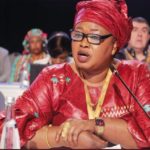
Banjul, the Gambia
Mayor Rohey Malick Lowe
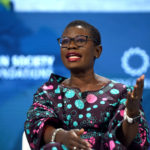
Freetown, Sierra Leone
Mayor Yvonne Aki-Sawyerr

Tirana, Albania
Deputy Mayor Anuela Ristani

Mannheim, Germany
Mayor Peter Kurz

Hoima, Uganda
Mayor Grace Mary Mugasa
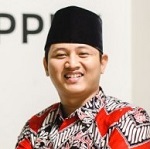
Trenggalek, Indonesia
Mayor Mochamad Nur Arifin

Santa Fe de la Vera Cruz, Argentina
Mayor Raúl Emilio Jatón

Haifa, Israel
Mayor Einat Kalisch Rotem

Mogadishu, Somalia
Mayor Mohamud Mohamed Filish
Governor of Benadir Region

Rabat, Morocco
Mayor Mohamed Sadiki
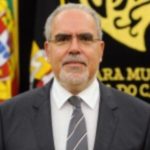
Viana do Castelo, Portugal
Mayor José Maria Costa

Nansana, Uganda
Mayor Regina Nakazzi

Cluj-Napoca, Romania
Mayor Emil Boc

Buffalo City, South Africa
Mayor Xola Anderson Pakati

Afanloum, Cameroon
Mayor Marie Angele Meyanga

Mafra, Portugal
Mayor Hélder Sousa Silva

Basse, the Gambia
Mayor Foday Danjo
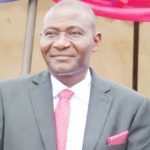
Iganga Municipality, Uganda
Mayor David Balaba
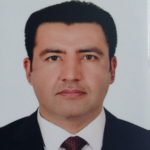
Puli Alam, Afghanistan
Former Mayor Naseer Ahmad Lilizai

Kabale, Uganda
Mayor Byamugisha Sentaro
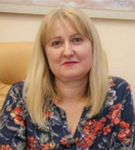
Burgas, Bulgaria
Deputy Mayor Vesna Baltina

Ghent, Belgium
Mayor Mathias De Clercq

Ghent, Belgium
Vice Mayor Tine Heyse

Ghent, Belgium
Former Mayor, Honorary member Daniel Termont

Munich, Germany
Deputy Mayor Katrin Habenschaden
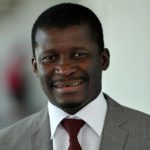
Quelimane, Mozambique
Mayor Manuel de Araujo

Wollongong, Australia
Mayor Gordon Bradbery
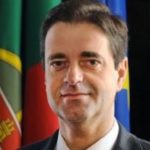
Braga, Portugal
Mayor Ricardo Rio

Palermo, Italy
Mayor Leoluca Orlando

Montpellier, France
Councilor and Representing Mayor

El Qrayeh, Lebanon
Mayor Maroun Antoun
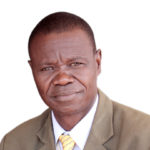
Nebbi, Uganda
Mayor Geoffrey Ngiriker

Izmir, Turkey
Mayor Tunç Soyer

Antsirabe, Madagascar
Mayor Rasamimanana Honoré Gabriel
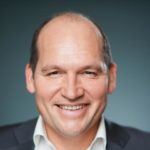
Brussels, Belgium
Mayor Philippe Close

Wroclaw, Poland
Deputy Mayor Jakub Mazur

Bern, Switzerland
Mayor Alec von Graffenried

Ivano-Frankivsk, Ukraine
Mayor Ruslana Haida
Keynote Speaker
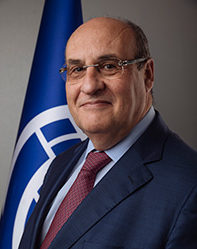
Director General International Organization for Migration
António Vitorino
The high level meeting will be opened by António Vitorino, Director General of the International Organization for Migration, and former European Commissioner for Justice and Home Affairs. António Vitorino served as Deputy Prime Minister and Minister of National Defense of Portugal, from 1995 to 1997. He has chaired the Civil Liberties and Internal Affairs Committee in charge of Migration, Asylum, Justice and Fundamental Rights. During these years António Vitorino crafted leadership, management and negotiation skills at the highest level and developed in-depth knowledge of global and national migration contexts and related policy challenges.
Champion Climate Mayors

Banjul, the Gambia
Mayor Rohey Malick Lowe
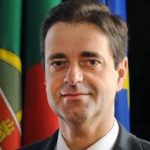
Braga, Portugal
Mayor Ricardo Rio

Palermo, Italy
Mayor Leoluca Orlando
Moderators

Senior fellow on global cities at the Chicago Council on Global Affairs
Ian Klaus
The high level meeting will be moderated by Ian Klaus, senior fellow on global cities at the Chicago Council on Global Affairs. Previously he served as diplomatic adviser to Urban 20 and C40 City Climate Leadership Group. Prior to that, he was senior adviser for global cities at the US Department of State. Klaus was deputy United States negotiator for the United Nations Conference on Housing and Sustainable Development. He is a member of the World Economic Forum’s advisory board on the future of urban development, the Creative Cities Working Group at Stanford University, a visiting fellow at the University of Pennsylvania, and the Ernest May Fellow for History and Security Studies at the Kennedy School of Government. He holds a PhD in international history from Harvard University, and is the author of Forging Capitalism (Yale, 2014) and Elvis is Titanic (Knopf, 2007).

Urban planner and Heritage Conservation Specialist
Dr. Ege Yildirim
The thematic debate on Culture will be moderated by Dr. Ege Yildirim. She is an urban planner and heritage conservation specialist with 20+ years of experience working in Turkey and internationally. Her work focuses on on heritage policy and governance; UNESCO World Heritage; and sustainable development. Based in Istanbul since 2013, she is an independent consultant and scholar. Her previous work includes positions of conservation planner at KA-BA Architecture Ltd, Ankara (200-06); conservation coordinator at Abu Dhabi Authority for Culture & Heritage (2008-12); consultant and Site Manager of the Historic Guild Town of Mudurnu (2014-2020); and Key Expert in the EU-Turkey Anatolian Archaeology and Cultural Heritage Institute project, Gaziantep (2019). Ege was a Fulbright Scholar at Pratt Institute, New York (2006-07) and a J.M. Kaplan Fellow at Koç University, Istanbul (2013). Most recently, she has served as the ICOMOS Focal Point for the UN SDGs (2016-2020), and currently coordinates the Sustainability Thematic Debate of the OurWorldHeritage Initiative.

Coordinator for the OECD Champion Mayors for Inclusive Growth initiative
Sena Segbedzi
The thematic debate on Innovative Policies on Financing tools will be moderated by Sena Segbedzi. She is the Coordinator for the OECD Champion Mayors for Inclusive Growth initiative. Her various experience includes designing an emergency management plan for the Greater Lyon Municipality in France, conducting an options assessment for waste management systems in Senegal with the African Institute of Urban Management, and analyzing domestic violence advocacy programs in Ghana. She holds a Master of Urban Planning from New York University’s Wagner School of Public Service and a Bachelor of Arts in Italian studies from Wellesley College.
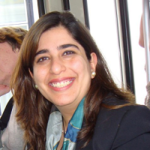
Chief of Urban Practices at UN-Habitat
Dr. Shipra Narang Suri
The thematic debates on Governance will be moderated by Dr. Shipra Narang Suri. She is the Chief of Urban Practices at UN-Habitat. She is an urban planner with extensive experience in advising national and local governments, as well as private sector organisations and networks, on issues of urban planning and management, good urban governance and indicators, livability and sustainability of cities, urban safety, women and cities, as well as post-conflict/ post-disaster recovery. She has a Ph.D. in Post-War Recovery Studies in 2009 from the University of York, United Kingdom.

